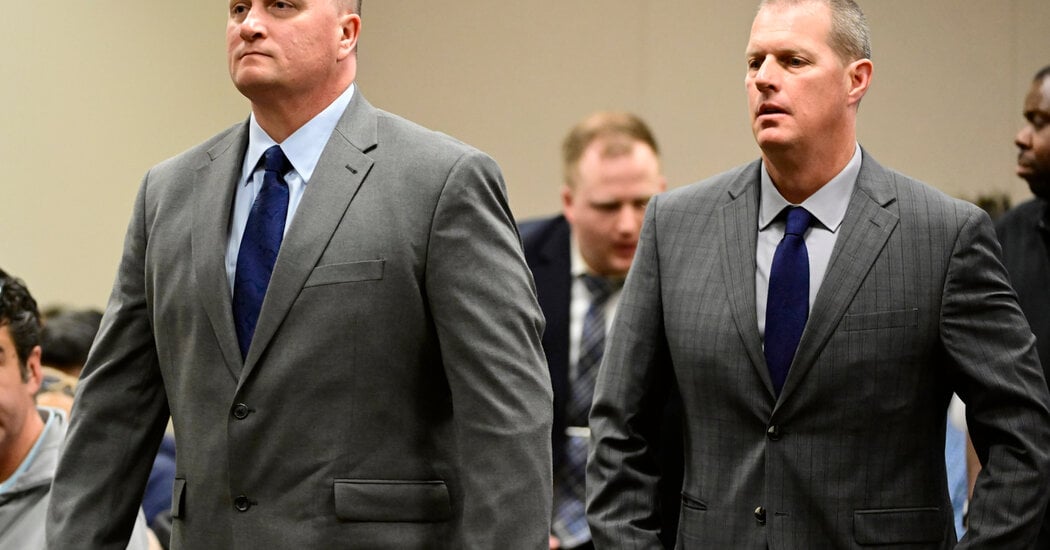Two Colorado paramedics were convicted of criminally negligent homicide in the 2019 death of Elijah McClain, a young unarmed Black man whose case drew national attention and forced public safety reforms in the city where he lived and died.
A mostly white jury found the paramedics, Peter Cichuniec and Jeremy Cooper, guilty of a more serious charge they faced. But the jury split on two lesser assault charges: They cleared Mr. Cooper of both assault charges, but convicted Mr. Cichuniec of one of those charges, second-degree assault for the unlawful administration of drugs.
The men had injected Mr. McClain with the powerful sedative ketamine while he was in police custody in Aurora, Colo., which doctors said left him near death. He died days later in the hospital.
The trial was a rare prosecution of paramedics, and raised the question of the role that medical personnel play in police encounters and whether they could be held criminally responsible for their actions.



Your reference, at least in this particular quote mentioned in infants so I’m not sure how that translates to teenagers or adults. But, yeah, looks like you’re right in at least high doses or very fast IV infusions, which I think this case covers both a high dose and a very rapid IV infusion. But I believe at what would be considered a normal dose there seems to be very little risk of respiratory depression.
“Consequently, ketamine-induced apnea or respiratory depression are transient and rare in case of occurrence, and result frequently from rapid IV infusion.”
https://journals.sagepub.com/doi/10.1177/2045125320981498
“Ketamine generally maintains normal pharyngeal and laryngeal reflexes and, therefore, permits spontaneous respiration. It slightly enhances or maintains normal skeletal muscle tone and is associated with cardiovascular and respiratory stimulation. These characteristics make it particularly useful in the emergency department setting for short-term procedures, especially as is often the case when a patient has not been “prepped” for an emergency procedure. Since there is no guarantee of maintenance of the pharyngeal and laryngeal reflexes, there can be no assumption that they will “protect” the airway. Additionally, there may be transient minimal respiratory depression if the medication is administered too rapidly or in too high a dose. Therefore, the physician must be ready to perform emergency intubation.” From the same article I linked earlier.
We can go back and forth all day, but ultimately they gave a medication that demanded a higher level of care than was provided and it was an appropriate sentence.
Well, I learned a bit more about ketamine today, so thanks for that. I wasn’t attempting to defend what the paramedics did to this person, it was more a slight attempt at defending ketamine against the generalized “ketamine makes you forget to breathe” statement as I felt it made it sound like it’s a very common thing.
The dose makes the poison.